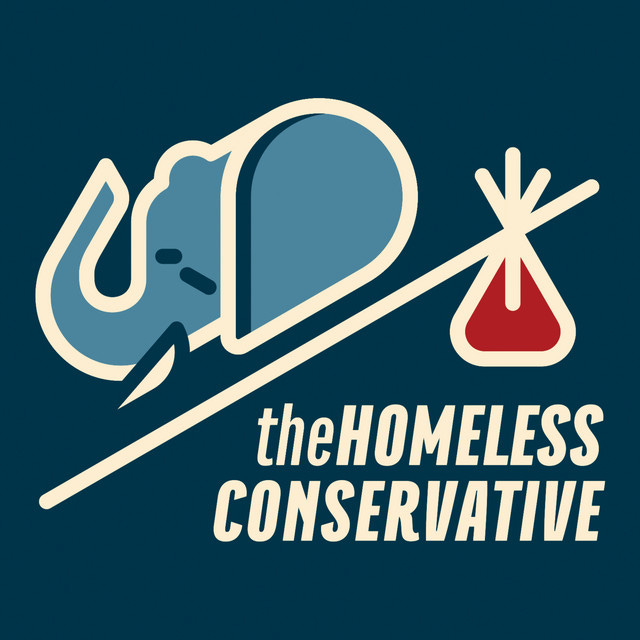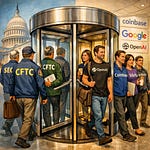This week, I joined Blake Fisher on The Homeless Conservative, a podcast for citizens exhausted by the chaos of modern politics. We broke down what's happening in the crypto world right now—from the rise of stablecoins to the ethical minefield that is TrumpCoin. This wasn’t just a crypto explainer. It was a blunt conversation about money, influence, and power. And it pulled no punches. Blake Fischer
Chapters
00:00 Introduction to Cryptocurrencies and Trump
02:37 The Shift in Trump's Stance on Crypto
05:08 Understanding Different Types of Cryptocurrencies
07:15 The Role of Stable Coins in the Economy
11:39 Government Regulation and Cryptocurrency
17:33 The Future of Crypto Regulation
25:57 Trump's Involvement in Cryptocurrency
30:14 The Global Perspective on Cryptocurrency and Politics
39:10 Corruption in Politics: A Systemic Issue
46:48 The Role of Influence and Money in Governance
Trump’s Crypto Flip-Flop: From Skeptic to Salesman
Trump was a vocal critic of cryptocurrency during his first term. He dismissed it as dangerous and unregulated. Now? He’s not only embraced it—he’s monetizing it. His family’s new venture, World Liberty Financial, is pushing out TrumpCoin, a meme coin marketed directly to his base with the promise of Mar-a-Lago dinners and, reportedly, even White House tours for top buyers.
“It’s not the grift that’s new—it’s just the first time you can see it happening in real time, on-chain.”
So what changed? Money. The crypto market is now over $3.3 trillion in value, and political campaigns are soaking up donations from wealthy Bitcoin holders, crypto executives, and lobbying firms. Once the capital started flowing, Trump’s rhetoric changed. He realized what everyone else in Washington eventually does: this isn’t just tech—it’s power.
Stablecoins Are Quietly Reshaping the Economy
A big part of the conversation focused on stablecoins, and why they’re not getting nearly the attention they deserve. These are digital tokens pegged to the dollar, backed by assets like treasuries or cash, and issued by private companies like Tether and Circle.
“They’re not banks. But they control billions—soon to be trillions—of digital dollars.”
What makes stablecoins so dangerous—and so powerful—is that they don’t just sit around. The companies behind them use your money to earn yield on safe assets, just like a bank. But unlike banks, they don’t have brick-and-mortar branches, don’t pay overhead, and don’t answer to the same regulations. The entire thing runs on servers and code.
And then there’s velocity. Every digital dollar can circulate five, six, even ten times faster than a physical one. That means a trillion dollars in stablecoins could simulate $7 trillion worth of economic activity. That’s real influence. That’s real national power. And right now, the government isn’t ready for it.
Crypto Is Not One Thing: Breaking Down the Confusion
Too many people—and too many policymakers—are using the word “crypto” like it means just one thing. It doesn’t.
Bitcoin is a decentralized asset with a two-trillion-dollar market cap. It’s closer to digital gold than a payment system. Stablecoins are privately run digital dollars. Meme coins are speculative hype tokens—gambling, basically, with a ticker symbol.
“You didn’t make a stoplight before we had a car. You let the roads fill up first. Then you figured out the rules.”
Right now, we’re seeing the roads fill up. Congress, meanwhile, is fumbling around in the dark. And when lawmakers don’t understand what they’re regulating, they either overcorrect or stay silent—until it’s too late.
TrumpCoin and the Ethics of Access
The TrumpCoin dinner offer sparked a huge part of the conversation. Spend enough and you’ll get access. Maybe dinner. Maybe a photo op. Maybe more. Is that illegal? No. But it sure as hell looks like pay-for-play.
“This isn’t new. This is just the first time the buy-in comes with a promo code and a token wallet.”
To be clear, it’s not just Trump. Hunter Biden sold paintings for half a million dollars. Members of Congress are funneling campaign money to spouses and consultants. Bob Menendez had literal gold bars in his closet. What we’re seeing with Trump is just more blatant, more on-the-nose. And honestly, that transparency might be the most useful thing about it.
The American people finally see how the sausage is made—and some of them are realizing they’ve never been allowed in the kitchen.
What About the Laws? And Who Enforces Them?
This is where the problem gets worse. Many of these activities aren’t illegal, at least not by the current rules. Trump’s coin is legal. Hunter’s paintings were legal. Congressional stock trades are technically legal too. The real scandal is how legal all of this still is.
“We’ve got more restrictions on MLB players betting on games than we do on lawmakers betting on legislation.”
We need stronger rules, better enforcement, and honest conversations about influence. Right now, members of Congress are writing laws that directly affect their portfolios. And when they’re not, they’re setting themselves up for massive windfalls the moment they leave office. Meanwhile, the American people are left guessing whether their leaders are voting their conscience or their balance sheet.
Bitcoin, Reserves, and What the Government Should Do Next
We also covered the growing conversation around Bitcoin reserves. The U.S. government holds over 200,000 BTC seized through prosecutions. Senator Cynthia Lummis has floated the idea of repricing our gold reserves at current market rates and diversifying into crypto.
This isn’t as radical as it sounds. We have oil reserves. We stockpile wheat, corn, and even PPE. Bitcoin could simply be another hedge. Especially if it’s not bought with taxpayer dollars but mined, seized, or offset with other reserves.
“We’re not talking about spending money we don’t have. We’re talking about using the assets we already control.”
Still, I get the concern. We’re running trillion-dollar deficits every year. Should we really be setting up sovereign crypto reserves before balancing the budget? That’s a fair debate. But it’s one we should be having—not avoiding.
My Take
Corruption is everywhere. That’s the truth. Whether it’s Trump’s coin, Biden’s son, congressional spouses, or insider trading, we’re long past the point of pretending this is about one man or one party.
The American people have a choice. We can fix the system—or we can keep getting distracted by whatever the next shiny scandal is. If we’re going to solve this, we need a real ban on congressional stock trading. We need public campaign financing. We need to close the revolving door between government and industry. And we need to stop pretending that calling out corruption is partisan.
“If you’re only outraged when it’s the other guy, you’re not against corruption. You’re just rooting for your team.”
We have a narrow window right now to act. Crypto is still small enough to regulate smartly. But it’s growing fast, and once it becomes systemically embedded in our political machinery, it’ll be too late. Let’s not miss this moment.
Wrap-Up
Thanks again to Blake for having me on The Homeless Conservative. It was good to have a real, honest conversation across ideological lines. If you're looking for more context and less spin, I recommend checking out the full episode. You can find it wherever you get your podcasts.
Happy HODLing, Everyone.












